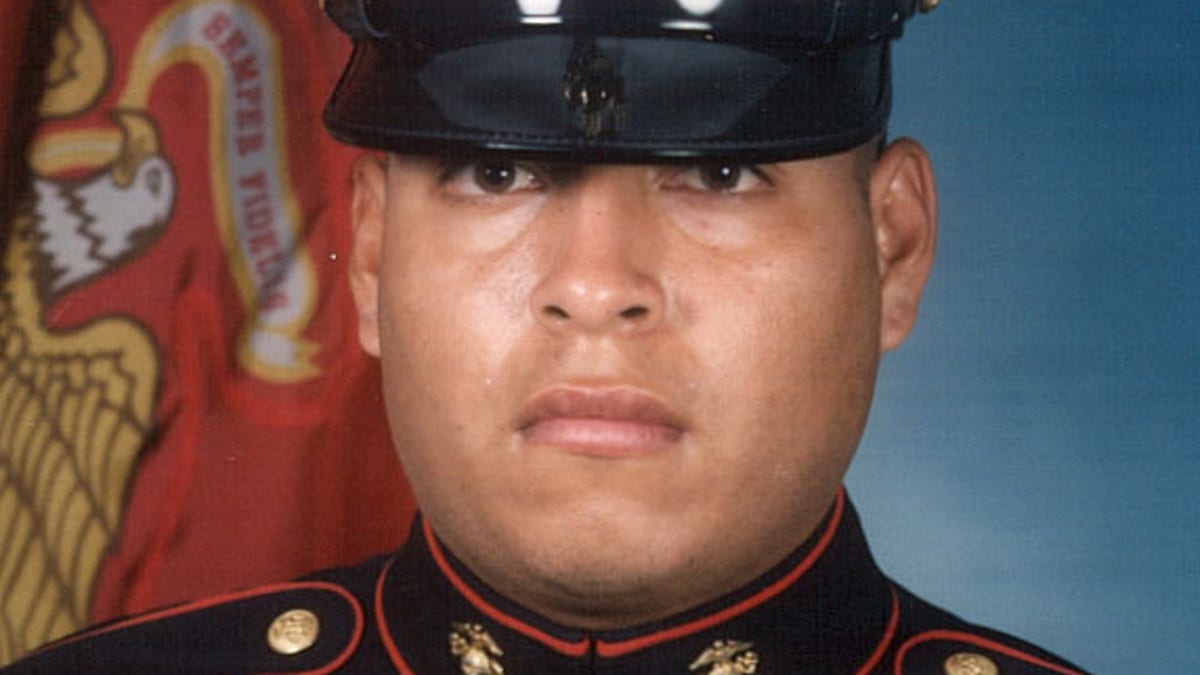
FILE - This undated photo released by the U.S. Marines, shows Sgt. Rafael Peralta, 25. (AP)
SAN DIEGO – Federal lawmakers announced Thursday they have obtained information previously unavailable to military investigators that proves the Navy should not have disqualified a San Diego Marine from being posthumously awarded America's highest military honor.
U.S. Rep. Duncan Hunter said his office sent a formal request from the area's congressional delegation to Navy Secretary Ray Mabus urging him to reconsider Sgt. Rafael Peralta for the Medal of Honor in a last-ditch effort before the deadline ends. Four other San Diego-area representatives and California Sens. Dianne Feinstein and Barbara Boxer also signed the letter.
After a scientific panel examined the forensic evidence at the time, former Defense Secretary Robert Gates decided to award Peralta the Navy Cross instead of the Medal of Honor based on the conclusion that the Marine who suffered a head wound was not conscious when his body smothered a grenade in Iraq in 2004, saving other Marines.
Hunter spokesman Joe Kasper said the congressman has obtained a video of the battle action and a newly released report by a forensic pathologist that proves Peralta was conscious and intentionally pulled the grenade under his body.
Hunter said the information was previously unavailable to military investigators and reaffirms "just how wrong Secretary Gates and his panel were in reaching their decision."
The Defense Department's conclusion contradicts the Marine Corps' report and the accounts of seven witnesses who saw Peralta pull the grenade to himself, Hunter said.
"The responsibility for correcting this mistake rests with the Secretary of Defense, who is in the position to ensure Sgt. Peralta receives the recognition he should have received years ago," said Hunter, a Marine combat veteran who fought in Iraq and Afghanistan.
Kasper said the congressman sent the Navy the report by forensic pathologist Dr. Vincent Di Maio, who concluded: "Taking into account the circumstances surrounding the incident: the statements of the witnesses; the condition of the body armor; the autopsy findings; the opinion of the neurosurgeons and neurologist and my own experience with head wounds, it is my opinion that, in all medical probability, Sgt. Peralta was not immediately incapacitated by the brain injury, and in fact reached for the grenade and pulled it under his body."
The Navy secretary's spokeswoman, Capt. Pamela Kunze, said Mabus will review the letter and "respond appropriately." She said in an email to The Associated Press that "Secretary Mabus' strong support of Sgt. Rafael Peralta is a matter of record," and that Mabus had recommended Peralta be posthumously awarded the Medal of Honor, but Gates did not agree.
Kunze said Mabus' appreciation of Peralta's heroism "was illustrated clearly" when the Navy secretary announced last month that the Navy would name a destroyer — one of the largest surface combatant ships — after the fallen Marine.
The California lawmakers commended Mabus for the decision but say Peralta's memory and his family deserve to see him join the class of heroes given the military's highest honor for valor.
"Giving Sgt. Peralta the last measure of recognition he deserves, by awarding him the Medal of Honor, would go a long way towards strengthening the integrity of the awards process," the letter states.

